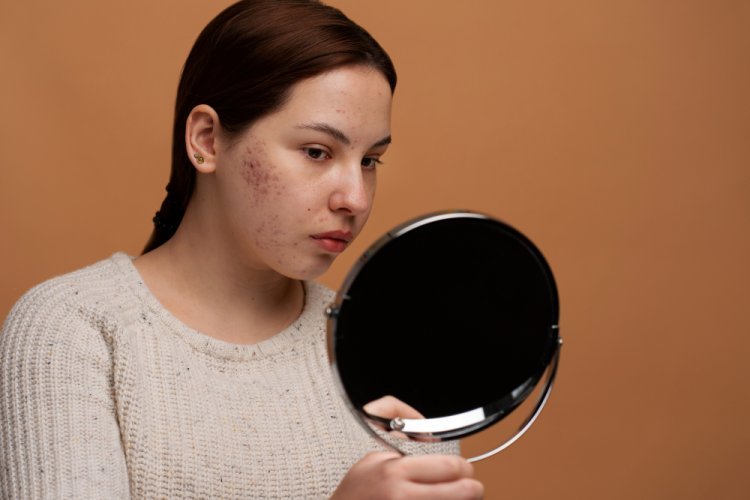Unravelling Your Skin Problems: Surprising Causes of Your Skin Issues
Addressing the root causes of skin problems is essential for achieving long-term skin health and radiance. By considering factors such as gut health, hormonal balance, environmental exposures, and lifestyle habits, you can take proactive steps to improve your skin from the inside out. Remember to consult with a dermatologist for personalized advice and treatment recommendations tailored to your specific needs.

Introduction
Welcome to our comprehensive guide on skin issues. Skin problems are not just surface-level annoyances; they often signify deeper underlying issues within the body. In this article, we delve into some of the surprising causes of common skin problems that you may not have considered before. Understanding these root causes is crucial for effective treatment and long-term skin health.
The Gut-Skin Connection
Unbalanced Microbiome
Did you know that your gut health could be directly linked to your skin? Research has shown that an unbalanced gut microbiome can manifest as various skin issues, including acne, eczema, and rosacea. When the gut microbiome is disrupted, it can lead to inflammation throughout the body, which often manifests on the skin's surface.
Food Sensitivities
Certain foods can trigger inflammatory responses in the body, leading to skin problems. Common culprits include dairy, gluten, and sugar. If you're experiencing persistent skin issues, consider eliminating these trigger foods from your diet and monitoring any improvements. Additionally, incorporating skin booster treatment can complement dietary adjustments by providing targeted nourishment and support for skin health, helping to alleviate skin issues and promote a clearer complexion.
Hormonal Imbalance
Stress
Chronic stress can wreak havoc on your hormonal balance, leading to a host of skin issues such as acne and premature aging. When we're stressed, our bodies release cortisol, a hormone that can increase oil production in the skin and exacerbate existing conditions.
Menstrual Cycle
For many individuals, hormonal fluctuations throughout the menstrual cycle can trigger breakouts and other skin problems. Understanding your hormonal cycle and how it affects your skin can help you better manage and prevent these issues.
Environmental Factors
Pollution
Exposure to environmental pollutants can take a toll on your skin's health. Air pollution contains harmful particles that can penetrate the skin barrier, leading to inflammation, oxidative stress, and premature aging. To minimize the effects of pollution, consider using skincare products with antioxidant properties and cleansing your skin thoroughly each day.
UV Radiation
We all know that sun exposure can cause skin damage, but did you know that it can also exacerbate existing skin conditions? UV radiation can trigger inflammation and hyperpigmentation, worsening issues such as acne and melasma. Protect your skin by wearing sunscreen daily and seeking shade during peak sun hours.
Lifestyle Factors
Sleep Deprivation
Lack of sleep not only leaves you feeling tired but can also take a toll on your skin. During sleep, the body repairs and regenerates skin cells, so insufficient sleep can lead to dullness, dark circles, and an overall lackluster complexion. Aim for 7-9 hours of quality sleep each night to support optimal skin health.
Poor Skincare Habits
Using harsh skincare products or neglecting to cleanse your skin properly can disrupt its natural balance and exacerbate existing issues. Opt for gentle, non-comedogenic products and establish a consistent skincare routine that includes cleansing, moisturizing, and sun protection.
Dietary Considerations
Hydration
Proper hydration is essential for maintaining skin health. Dehydrated skin can appear dull, dry, and prone to fine lines and wrinkles. Aim to drink at least eight glasses of water per day and incorporate hydrating foods such as fruits and vegetables into your diet.
Omega-3 Fatty Acids
Omega-3 fatty acids play a crucial role in skin health, helping to maintain its elasticity and hydration. Incorporate foods rich in omega-3s, such as salmon, walnuts, and flaxseeds, into your diet to support supple, youthful-looking skin.
Genetic Predispositions
Family History
Genetics can play a significant role in determining your skin type and susceptibility to certain skin conditions. If you have a family history of acne, eczema, or other skin issues, you may be predisposed to experiencing similar concerns. Understanding your genetic predispositions can help you tailor your skincare routine and treatment approach accordingly.
Ethnic Background
Ethnicity can also influence your skin's characteristics and susceptibility to certain conditions. For example, individuals with darker skin tones may be more prone to hyperpigmentation, while those with fair skin may be at higher risk for sun damage and skin cancer. Consider your ethnic background when selecting skincare products and sun protection measures.
Psychological Factors
Emotional Well-being
Your emotional well-being can have a profound impact on your skin health. Stress, anxiety, and depression can all contribute to skin issues such as acne, eczema flare-ups, and psoriasis. Practice stress-reduction techniques such as meditation, deep breathing exercises, and regular physical activity to support both your mental and skin health.
Body Image
Body image concerns can also influence how you perceive and care for your skin. Negative body image can lead to excessive skincare habits, such as overwashing or over-exfoliating, which can actually exacerbate skin issues. Practice self-compassion and focus on nurturing your skin with gentle, nourishing skincare products.
Professional Treatments
Dermatological Procedures
In addition to at-home skincare practices, consider seeking professional treatments from a dermatologist to address stubborn skin issues. Treatments such as chemical peels, laser therapy, and microneedling can target specific concerns and promote overall skin health.
Prescription Medications
For severe or persistent skin problems, prescription medications may be necessary to achieve effective results. Dermatologists can prescribe topical creams, oral medications, or hormonal therapies to address conditions such as acne, eczema, and rosacea.
Conclusion
In conclusion, addressing the root causes of skin problems is essential for achieving long-term skin health and radiance. By considering factors such as gut health, hormonal balance, environmental exposures, and lifestyle habits, you can take proactive steps to improve your skin from the inside out. Remember to consult with a dermatologist for personalized advice and treatment recommendations tailored to your specific needs.
What's Your Reaction?










![Wireless Connectivity Software Market Size, Share | Statistics [2032]](https://handyclassified.com/uploads/images/202404/image_100x75_661f3be896033.jpg)


